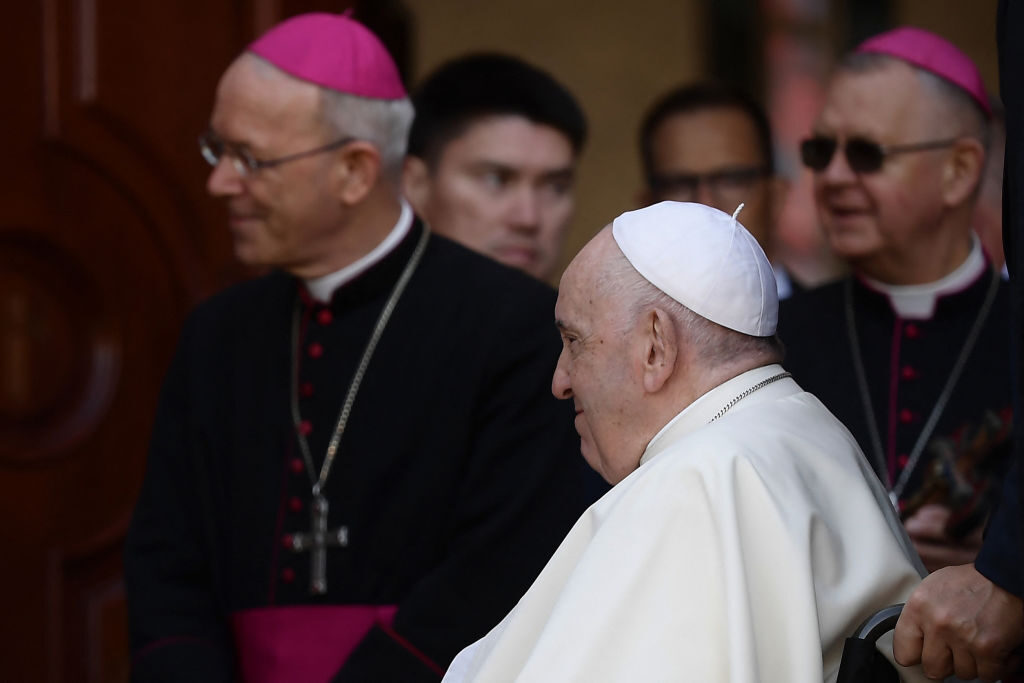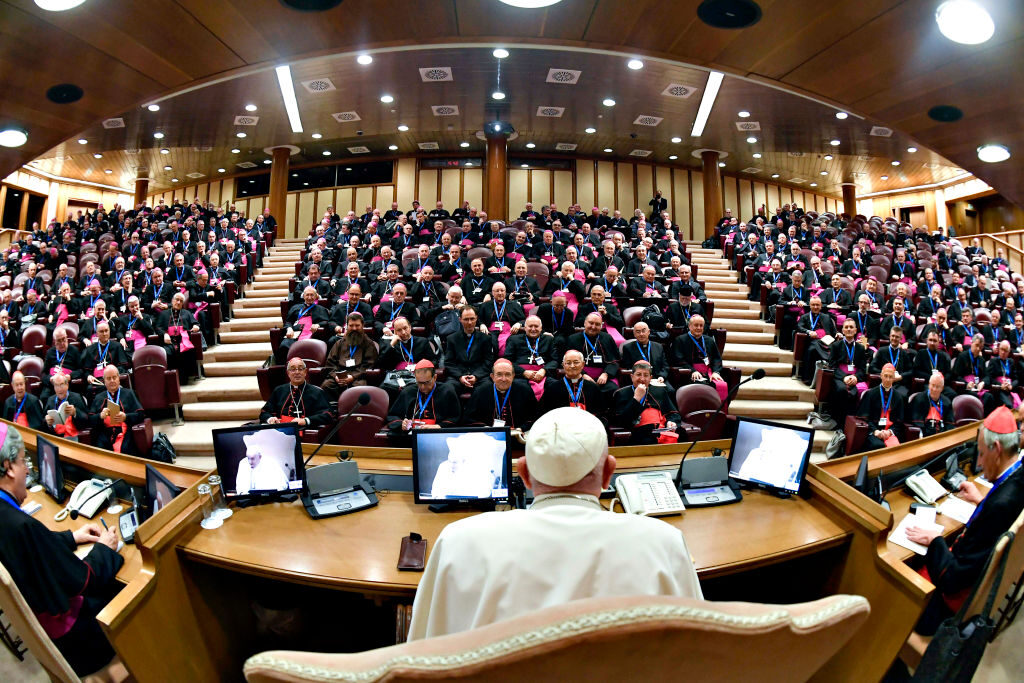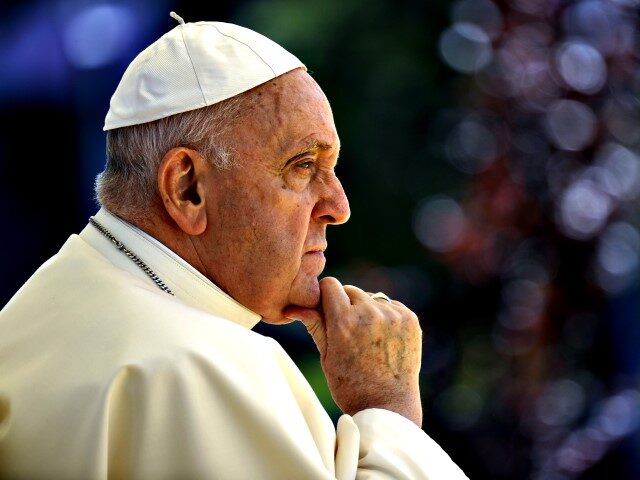ROME — Kazakh Bishop Athanasius Schneider has joined the many Catholic prelates warning of nefarious plotting behind the scenes of the upcoming Vatican “Synod on Synodality.”
O Lord, “prevent the enemies of the Church from exulting in a victory over the authentic Catholic Church obtained by imposing a counterfeit church under the guise of ‘synodality,’” Bishop Schneider wrote in a September 29 prayer for the synod.
“For where sin and apostasy in the Church abounds, the victory of Your grace will abound the more,” the bishop added.
In his prayer, released on the feast of Saint Michael the Archangel, Schneider also laments the “profound distress” to which the Catholic Church is being subjected, citing “doctrinal confusion, moral abomination, and liturgical abuse.”
The full text of the prayer was retweeted by the redoubtable Cardinal Joseph Zen, former bishop of Hong Kong and a vocal critic of the Vatican’s “selling out” of the Catholic Church in China.
Last month, Pope Francis publicly appealed to journalists to help him put a positive spin on the upcoming synod, aware of the negative press it has received.

File/Pope Francis, flanked by bishop Athanasius Schneider (L), the auxiliary bishop of Astana, meets with bishops, priests, deacons, consecrated persons, seminarians and pastoral workers in Our Lady of Perpetual Help Cathedral in Nur-Sultan on September 15, 2022. (FILIPPO MONTEFORTE/AFP via Getty)
“I dare to ask you, the experts of journalism, for help,” the pontiff told a meeting of journalists in the Vatican; “help me to narrate this process for what it really is, leaving behind the logic of slogans and pre-packaged stories.”
Francis acknowledged that the idea of a synod on synodality “may seem something abstruse, self-referential, excessively technical, of little interest to the general public,” or what Catholic intellectual George Weigel called “ecclesiastical navel-gazing.”
Synodality, as numerous pundits have observed, is notoriously difficult to define and critics have suggested that this lack of clarity is intentional, since it leaves the process open to greater manipulation. A synod is a meeting or assembly and synodality would be a movement toward a system of decision-making where such meetings take on more central importance.
In its spirit of “openness,” “inclusivity,” and “listening,” this fall’s synod on synodality proposes to revisit a series of issues within church teaching that seemed definitively decided. Progressive Catholics have capitalized on the open door to push their favorite issues, from women’s ordination to a softening of Catholic moral teaching on sexuality.
In August, conservative Cardinal Raymond Burke warned that the move toward synodality is causing “evident and grave harm” to the Church.
Burke, a canon lawyer and former head of the Vatican’s highest court, observed that the Catholic Church in Germany has already experimented with synodality, with disastrous results, spreading “confusion and error and their fruit, division – indeed schism.”
The same confusion and error and division could well “be visited upon the universal Church,” Burke cautioned.
The cardinal also highlighted the innovative and indeed “revolutionary” nature of trying to redefine the Church by synodality.
From the time of the Apostles, he noted, the Church has been characterized by four marks, namely that it is “One, Holy, Catholic, and Apostolic,” but never by synodality.

Pope Francis attends the opening of the 77th General Assembly of the CEI (Italian Episcopal Conference) at the Synod Hall on May 22, 2023 in Vatican City, Vatican. (Vatican Media via Vatican Pool/Getty Images)
Indeed, Lumen Gentium, the dogmatic constitution on the Church issued by the Second Vatican Council in 1964, never even mentioned the word synod or synodality.
The late Australian Cardinal George Pell similarly called the upcoming synod on synodality a “toxic nightmare,” asserting it is “hostile” to the Church’s apostolic tradition.
The synod’s working document focuses on radical inclusion, listening, participation, and co-responsibility with believers and nonbelievers, while ignoring central themes of Christian teaching and practice, Pell wrote.
For his part, Cardinal Gerhard Müller, the former prefect of the Vatican’s doctrinal office, has called the synodal path a “hostile takeover of the Church of Jesus Christ.”
“If they succeed, it will be the end of the Catholic Church,” he said of those promoting the synodal process. “And we must resist it like the old heretics of Arianism.”

COMMENTS
Please let us know if you're having issues with commenting.